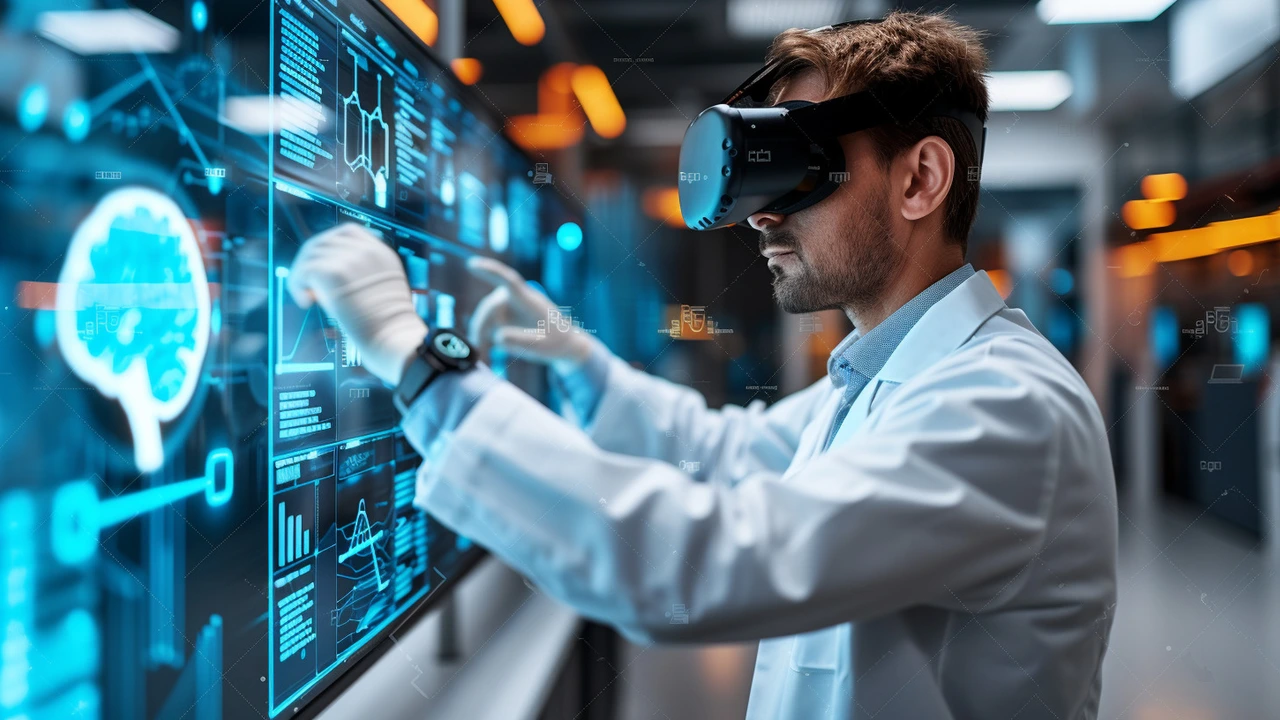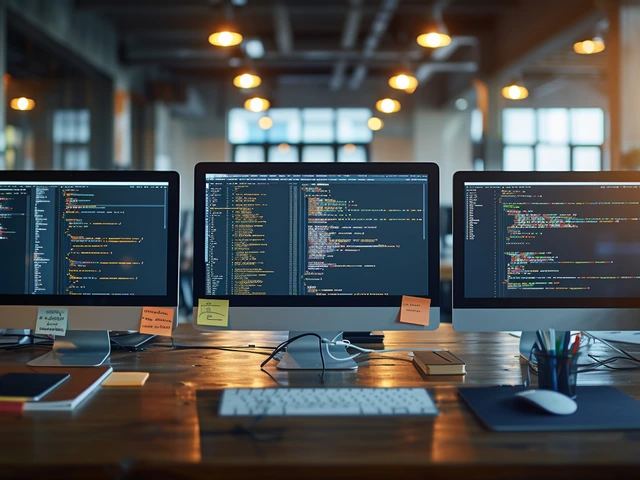Aug
7

- by Lillian Stanton
- 0 Comments
The Emergence of Coding for AI
I clearly remember the day I pressed the "Enter" key on my keyboard and witnessed my first "Hello, World!" popup on the screen. The satisfaction that came from crafting this tiny line of code was quite intoxicating! It was only a simple 10-character string, but it marked the onset of my journey into the vast world of coding. With each passing day, as I delved deeper into programming languages and coding, I realized the enormous potential this world holds. And when the trail led me to coding for AI, I was simply amazed.
Artificial Intelligence, with its limitless applications and potential, is indeed a game-changer in the tech industry. As our world gets progressively more digital, coding for AI has emerged as a catalyst for change in technology today. By equipping myriad devices and applications with the ability to mimic human intelligence and tasks, AI is presenting untapped opportunities for businesses and individuals alike.
The Intricacies of AI Coding
One might wonder, how is coding for AI different from conventional coding? Well, the realm of AI embraces a distinctive approach, which is mostly model-based. It requires knowledge and application of algorithms and statistical models, as AI systems rely heavily on identifying patterns and making predictions. Given the complexity of tasks these systems perform, it's safe to say that coding for AI isn't a cakewalk, but let me assure you, the challenge is absolutely worth it.
Coding for AI demands a versatile skill set. It's a blend of programming, data science, and creative problem-solving. For instance, one day you could be exploring neural networks, and the very next day, you're crafting reinforcement learning models. Coding for AI is a constant cycle of learning, implementing and refining, and this cyclical and rewarding process is something I've personally always enjoyed.
Unveiling the Widely Used AI Languages
Coding for AI comes with multiple programming languages like Python, C#, Java, R, and Lisp, to name just a few. Why so many, you ask? Well, each AI task demands different capabilities, and every language offers unique strengths. For instance, Python is favoured for its simplicity and readability whereas C# is popular for game development. Nonetheless, the ability to understand and command more than one language certainly enhances the efficiency and flexibility of an AI programmer.
The story of learning my first AI programming language - Python, is quite a tale. With multiple cups of coffee and late-night struggles, I welcomed Python into my life, and despite all the challenges, it was love at first line of code. Python, with its rich library support and an easily readable syntax, is no doubt the lingua franca in the AI community, but that shouldn't discourage you from exploring more languages and enlarging your AI arsenal.
Diving into the Pool of AI Applications
The field of AI, with its vast commercial and non-commercial applications, has spiced up the tech industry. Driving autonomous vehicles? Chatting with a conversational bot? Getting product suggestions from integrated systems? Enjoying Netflix's personalised recommendations? You can thank AI coding for all of these. The fascinating part is that we're just scratching the surface of AI's potential. The possibilities are virtually endless!
To illustrate, one of my pet projects involved creating a simplistic chatbot using Python and integrating it with a website. At first, it was all about the thrill of creation but then, watching it interact with visitors in a human-like manner got me reflecting on AI's potential to revolutionize communication for businesses. And, based on my experience, I can assure you that such hands-on projects are not just fun but also extremely enlightening.
Facing the Ethical Dilemma in AI
While AI's potential is undeniable, there's no ignoring the buzzing discussion about its implications. Do AI applications threaten jobs? Are they susceptible to misuse? Well, I believe these concerns are valid and very much a part of our journey with AI. As an AI developer, the ethical aspect of AI usage is something I regularly ponder. I think it's essential to ensure that our AI coding skills empower and enhance human lives, rather than replace or harm. A responsible approach towards AI is the only sustainable way forward.
Drawing from my experience, dealing with these ethical dilemmas has made me a more responsible and conscientious coder. Choices that seemed straightforward became compelling debates. It was a learning curve that made me realize the broader implications of my work, and I believe this awareness is a must for anyone venturing into the world of AI coding.
AI Future and Tech Industry
With coding for AI, the future of the tech industry bursts with exciting possibilities. As AI continues to forge its path into unexplored territories, its impact will extend to industries and areas we didn't imagine. Will we have AI-enabled healthcare solutions predicting diseases? Will our household chores be seamlessly managed by AI home assistance? I'd like to think so! We are now living the convergence of code, AI, and life as we know it. It's an exhilarating time to be associated with AI and witness the unfolding change.
I remember a conversation I had with an enthusiastic college student contemplating the idea of diving into AI. His fascination broke into a grin as he said, "It feels like stepping into the future!" And I couldn't agree more. AI is gradually becoming an integral part of our daily lives, shaping our experiences in subtle yet significant ways. So, here's my tip: brace yourself for the fascinating journey coding for AI entails, and ensure you hold your ethics close as you navigate through this exciting sphere.
A Final Word
AI has come a long way, from being just a theme in sci-fi movies to becoming a tangible force driving change in the tech industry. Coding for AI offers an attractive career path for individuals with an itch for innovation and a love for problem-solving. And it's not just about employment prospects or attractive pay scales. It's about the opportunity to craft unexplored solutions and create a meaningful impact. But remember, embark on this journey not merely for its appeal but also for the substantial societal responsibility it carries.
My journey with AI coding started with a "Hello, World!" popup. And as the world becomes ever-increasingly digitised, I am looking forward to the many more "Hello's" that AI has yet to say. So, if you've ever thought about venturing into AI, let this be the push you needed. Grab your mug of coffee and dive into the captivating world of coding for AI. Make your mark on the future!






Write a comment